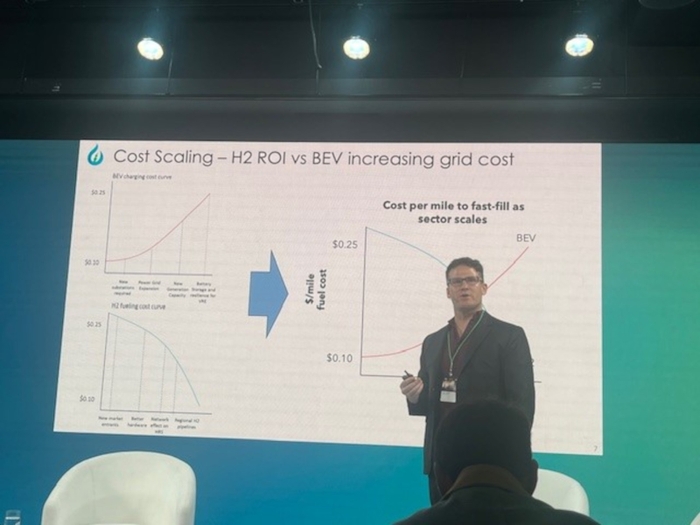What Is the Future of Hydrogen-Powered Vehicles?
Oct 01, 2024
What Is the Future of Hydrogen-Powered Vehicles?
Much of the buzz around fueling alternatives to internal combustion engines have revolved around electric and hybrid-electric power. Still, other alternatives such as hydrogen power continue to lurk, particularly as stringent fuel economy standards for vehicles continue to be phased in. At the BMW Climate Week event in New York City this week, a panel session did a deep drive into the promise and challenges facing hydrogen power as a vehicle fueling source.
Although hydrogen is commonly thought to compete with battery-electric as a vehicle power source, the panelists suggested that hydrogen power can complement battery-electric power, offering an alternative in applications where the electric grid may not be practical or too costly. The panelists did acknowledge the current limitations on hydrogen power infrastructure that have so far hampered growth, but suggested that situation should improve as the industry looks for alternatives to traditional internal combustion powered vehicles.
Dr. Jason Munster, founder of Clean EPIC, a consulting firm advocating the growth of hydrogen power, said a strong case can be made for hydrogen power in areas where constructing charging stations for EVs is impractical because of space or electric grid limitations.
Related:Honda Launches Production of Hydrogen Fuel Cell SUV
“Once you run out of grid capacity, you need to build new stations,” said Munster in his opening panel session remarks. “Expanding the grid for battery-electric vehicles is not feasible in large cities.”
Munster acknowledged that hydrogen is currently expensive, but he expects the cost of infrastructure to store and transport ydrogen to eventuallycome down.

Dr. Jason Munster of Clean EPIC during a panel session at BMW's Climate Week event. (Spencer Chin)
Hub concept
Addressing the hydrogen infrastructure issue is a priority, acknowledged another panelist, Dr. Lewis Fulton, Director of the Energy Futures Program, Institute of Transportation Studies at the University of California at Davis. Over the next three years, Fulton expects the emergence of hydrogen hubs in various regions of the US, as part of a strategy to develop a zero-emission freight corridor for trucking. Citing the US National Clean Hydrogen Strategy and Roadmap, Fulton noted that the government is targeting high-impact uses such as medium- and heavy-duty trucks. He sees trucking as a prime opportunity because of ongoing high fuel costs that will drive the trucking industry to look at alternate fuel technologies.
Fulton also acknowledged the relatively slow development of hydrogen fuel cells but sees more opportunities once the hydrogen storage and fueling stations network is built out.
Related:Driving the Remarkably Unremarkable BMW iX5 Hydrogen Fuel Cell Vehicle
BMW bullish on hydrogen
German Carmaker BMW is also pursuing hydrogen, in parallel with expanding electric vehicle lineup and continuing development of vehicles with internal combustion engines. “We have an open long-term technology approach,” said panelist Dr. Juergen Guldner, General Project Manager for BMW. To Guldner, the fueling technology BMW deploys will depend on where and when energy is produced. “The problem is that the fluctuation of renewables results in curtailment. Hydrogen production can serve as load balancing using surplus of renewable energy.”
BMW has already developed a prototype hydrogen fuel cell vehicle called the BMW iX5. It uses fuel cells developed by Toyota. According to Gulder, the company is targeted 2028 for introducing a production hydrogen fuel cell vehicle designated the i3.